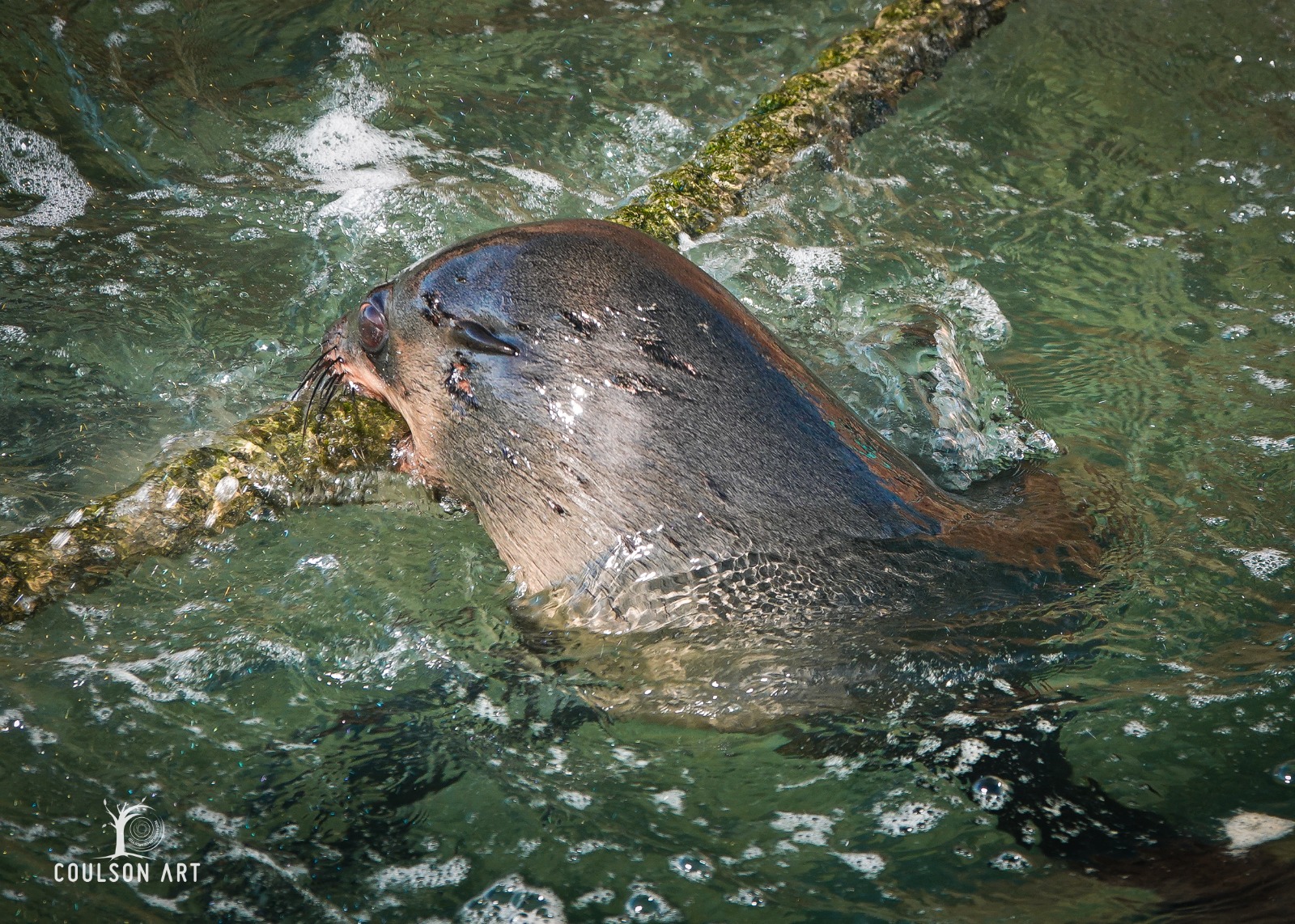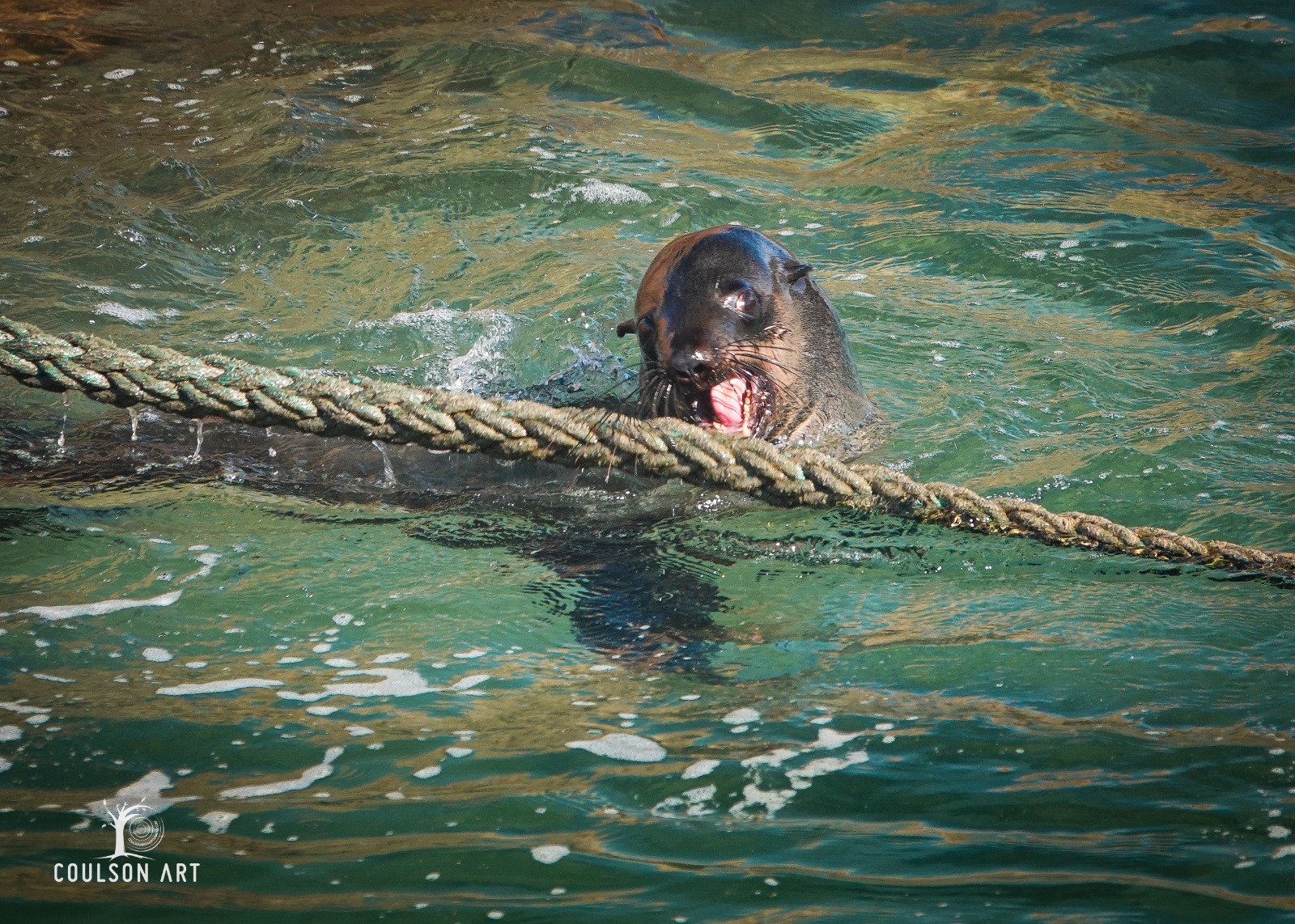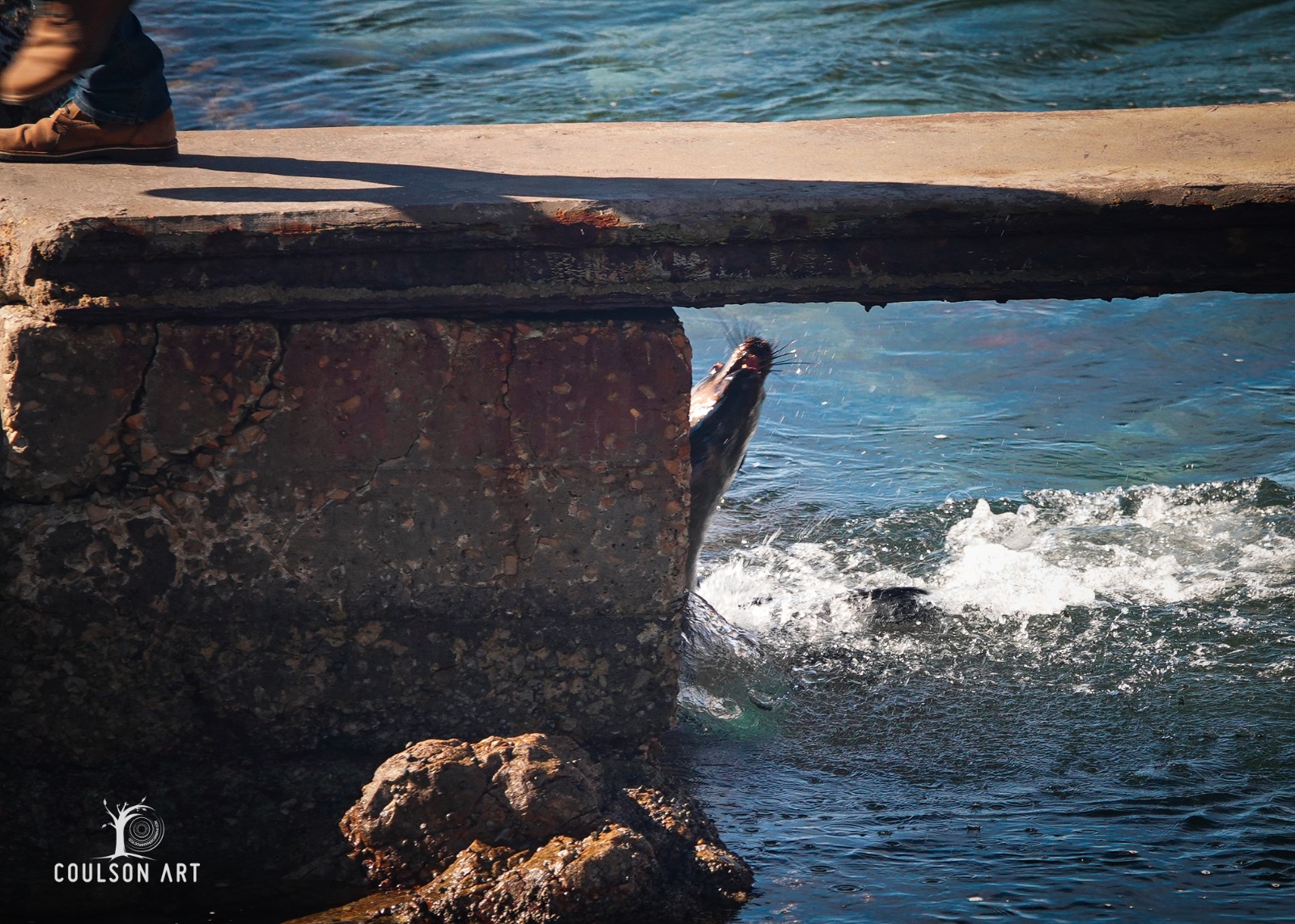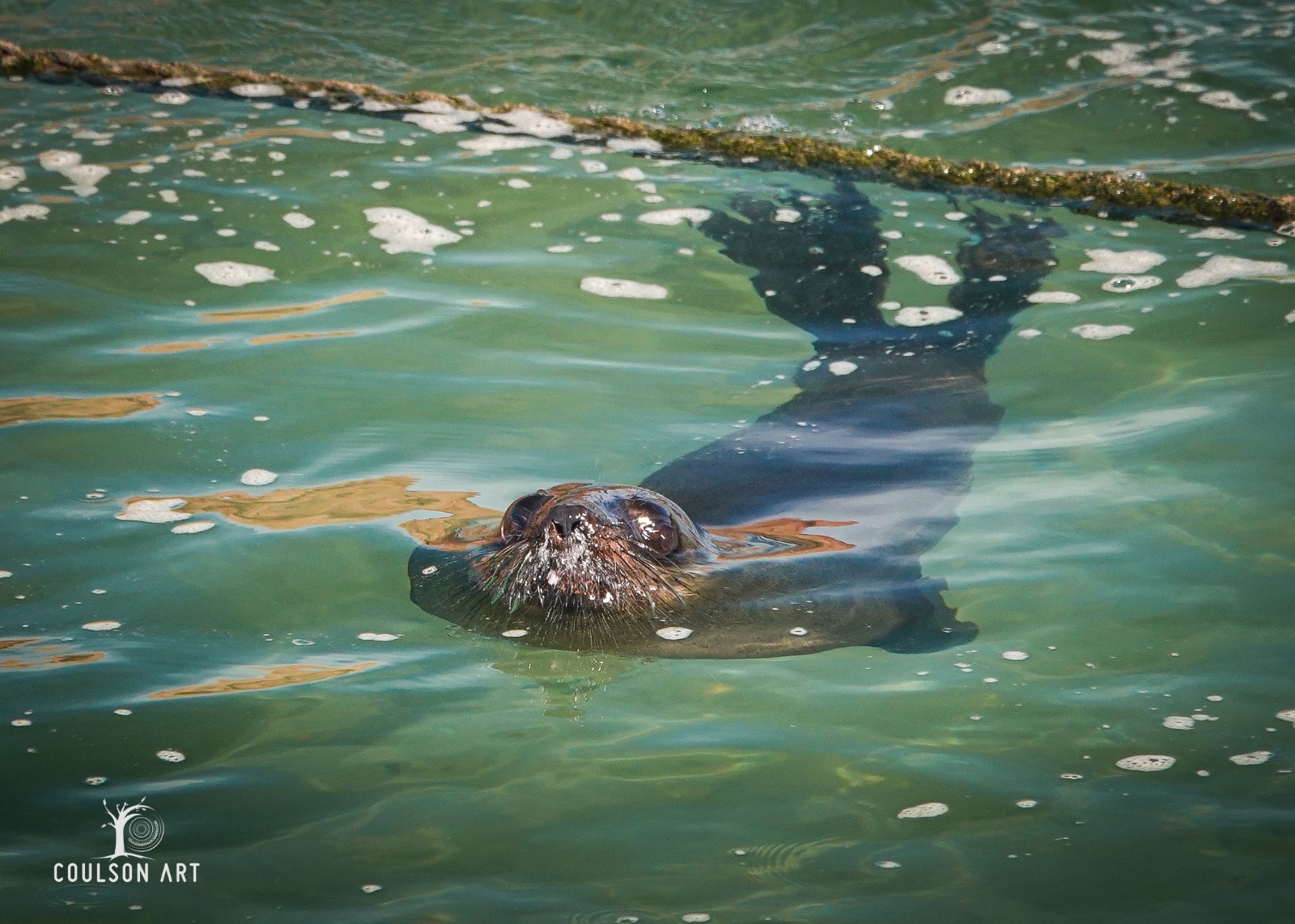Mossel Bay seal euthanised after aggressive behaviour
After other positive cases of rabies had been reported along the coastline of the Western Cape, the decision was made to euthanise a seal that displayed aggressive behaviour.

A seal, suspected to have rabies, seen at the Poort swimming area at The Point, Mossel Bay, was euthanised on Wednesday following its “unnatural and aggressive” behaviour.
A statement posted on the Garden Route SPCA’s (GRSPCA) Facebook page on Wednesday noted that a member of the public had reported the “aggressive” seal and that Louis Steyn from the Stranded Marine Animal Rescue Team (S.M.A.R.T.) responded and sought assistance from various organisations, including the GRSPCA.
“Our inspectorate team responded immediately and arrived on the scene with the SAPS and the Traffic Department.
“The seal was observed, exhibiting unnatural and aggressive behaviour. Due to other positive cases of rabies along the coastline having been reported, and in the interest of public safety, the decision was made to euthanise the seal,” read the statement.
Euthanised
The seal was euthanised on the spot, at the Poort.
The statement noted: “The SPCA ensured this was carried out in the most humane manner. The necessary tests will be conducted by the state to determine whether the seal is, in fact, positive for rabies.”
The GRSPCA is urging the public to exercise caution on local beaches.
“Wild animals should never be approached. Please be mindful when you are walking on the beach with your dogs.”
Report any cases of seals exhibiting abnormal behaviour to the SPCA immediately.
“It is imperative that we keep our community safe, but also that these marine creatures are handled with compassion and as humanely as possible. Stay safe and vigilant,” read the statement.
S.M.A.R.T. spokesperson Val Marsh said an assessment team of three S.M.A.R.T. volunteers, who have been with the organisation for many years, went to the scene. Steyn then contacted Marsh, who is also the incident controller.
She said there was a process to follow to get permission from the necessary department and have the necessary officials on the scene, before the seal was euthanised at the spot.
To report any incidents, call the GRSPCA (044 693 0824) or S.M.A.R.T (072 227 4715).

Aggressive seal
A video posted on Coulson Art Photography’s Facebook page and shared to the Mosselbaai op sy beste Facebook page on Wednesday shows a seal furiously biting a rope hanging down from a rock at the Poort.
It also shows a young boy and a man crossing a small walkway over the water with the seal jumping up from the water, seemingly trying to bite the boy and the man.
Western Cape Department of Agriculture
On June 27, the department released a statement that noted there had been recent confirmation of rabies in Cape Fur Seals along the Western Cape coast.
The statement urged individuals who frequently come into contact with seals or use coastal areas for recreational activities, such as surfers, divers, water sports enthusiasts and those in the fishing industry particularly, to be extra cautious.

Extent of outbreak
The statement read that stored samples collected from seals since 2021 by Sea Search were being tested to determine the timeline and extent of the outbreak and that the Agricultural Research Council’s Onderstepoort Veterinary Research confirmed positive rabies cases in seals from Melkbosstrand (October 2023), Plettenberg Bay (January 2024), and Die Dam near Gansbaai (June 2024).
Additionally, researchers at the University of Pretoria have detected rabies in seals from Fish Hoek (October 2023), Pringle Bay (February 2024), Strand (May 2024), and Muizenberg (May 2024).
Critical information
“Rabies is a serious and often fatal disease. The rabies virus is spread to humans and other animals through contact with the saliva of infected animals,” read the statement.
“Humans can be exposed to rabies through bites, scratches or licks to wounds, grazes, broken skin, or to the lining of the mouth and nose by rabid animals.”

Common signs and symptoms
Symptoms and common signs of rabies in humans include discomfort or pain at the site of the wound, fever, headache, nausea and vomiting. The statement noted that this rapidly progresses to signs of neurological dysfunction, which may include changed behaviour, confusion and agitation.
“People with rabies can also display hypersalivation, localised weakness and paralytic syndromes, which eventually progress to coma and death.”

Medical attention critical
Immediate medical attention following suspected rabies exposure is critical.
If no post-exposure prophylaxis is given, an infected person may start experiencing symptoms one to three months after exposure. The statement read that in rare cases, symptoms can develop after more than six months following an exposure.
“If you have been bitten by a seal in the last six months, it is crucial to seek medical evaluation from a healthcare provider (general practitioner, clinic, public or private hospital) immediately. The incident will be assessed for the necessity of post-exposure prophylaxis (PEP).
“This is irrespective of whether you previously received medical attention for the bite. Rabies vaccine and immunoglobulin is available at strategic public hospitals, emergency centres at private hospitals, travel clinics and selected pharmacies,” read the statement.
Guidance on animal bites
For bites from animals such as dogs, cats, mongooses, jackals or seals, follow these steps:
• Clean the wound thoroughly with soap and water, as soon as possible after the injury.
• Visit a hospital emergency centre promptly for a medical assessment.
• The need for PEP with rabies vaccine and rabies immunoglobulin administration will be determined based on the category or nature of the bite, severity, and risk assessment for potential rabies exposure.
Additional measures
• Avoid interacting with seals and other wild animals.
• Ensure your pets’ rabies vaccinations are current. Pets need revaccination every one to three depending on the vaccine and regional rabies risk.
• Keep dogs controlled or on a leash to prevent contact with wild animals.
• Report any strange animal behaviour to the local State Veterinary Office (www.elsenburg.com/veterinary-services/animals.
Read original story on www.mosselbayadvertiser.com
